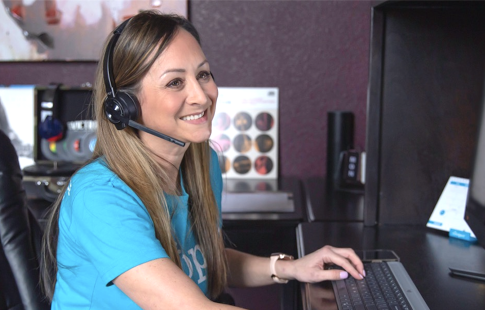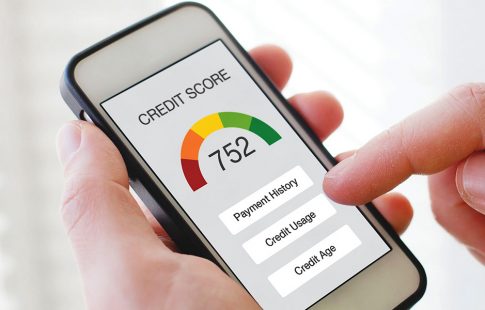From my late twenties to my early thirties I would celebrate when payday came around only to hand over my entire check to my bills. I could never seem to accumulate enough savings to get ahead because my monthly expenses accounted for roughly 99% of my income every month. And heaven help me if I needed new tires, or got sick and had to go to the emergency room. When those situations arose, I’d either wipe out my entire savings on those unexpected expenses, or worse, I’d use a credit card. Next thing I knew, I barely had any cash saved, and I had over $30,000 in credit card debt.
So, what was I missing? The answer is simple in theory, but requires knowledge, discipline, and sacrifice.
Learn how money works
Let’s begin with knowledge. Think about your day job. There are words and terms that have specific meaning in the context of your job. Similarly, money has its own language called “financial literacy” you need to learn in order to be successful financially. There is a fantastic book entitled “Rich Dad, Poor Dad” by Robert Kiyosaki that does a great job of teaching its key concepts. I’ve linked to its audio book here, and I highly encourage you to start your knowledge journey there.
Determine your budget formula
Once you have the basic financial knowledge, the next step is to implement the lessons learned into your daily life. Through my knowledge journey, I learned that the baseline formula should be:
- 33.3% budgeted for rent/mortgage.
- 33.3% for other monthly living expenses such as credit card payments, car note, groceries, etc.
- And 33.3% for savings.
So basically, 66.6% for expenses and 33.3% for savings. Mine was 99% expenses and 1% savings. Which meant I needed to figure out how to reduce my monthly expenses.
That’s where discipline and sacrifice come into play. Learn about the concepts of “budgeting” and “understanding cash flow.” In simplest terms, budgeting is planning out your monthly expenses vs. your monthly income. Read more on specific budgeting tips here.
Understand your monthly cash flow and make adjustments to reduce your expenses
There were times where my rent, car note, and one of my credit cards were all due at the same time and I had to use another credit card to make payments. As a result, I was always increasing my credit cards’ balances which put me in a negative cash flow situation.
So, the first thing I did was to call my creditors and ask to rearrange my payment due dates to coincide with my pay dates. That way, I had enough in every paycheck for my bills that period, and I could stop using my credit cards to pay bills. I also took on a roommate to reduce my monthly rent.
Pick a creditor, payoff that debt, and snowball
Two years into my get-out-of-debt journey, my car note was paid off. NO MORE CAR NOTE…YAAAAYYYY!! At this point, my car was eight years old. It was not pretty, nor did it have all the “state of the art” technology, but it was functional and got me from point A to B. I wanted a new car but didn’t buy one. I chose to make that sacrifice for my financial health and waited until I was out of debt before I took on another car payment—another five years.
I was then able to take the money that I previously used to make my car payment every month and use it to make extra payments on my credit cards. This is called the “snowball method.” I targeted the credit card with the lowest outstanding balance, and I took the money saved from not having a car note and added it to that monthly credit card payment. I was now able to pay three times the minimum payment on that credit card (much more rapidly decreasing the principal balance left on that credit card.) That was key because it can take years to get out of debt if you only pay the minimum payment due, depending on your balance and interest rate.
Once that card was paid off, I took the savings from my car note money and credit card and added it to the monthly payment for my credit card that had the next highest balance. In other words, I was now able to pay five times the minimum payment due on this second card. Hence, the snowball. I kept repeating this process until all my credit cards were paid off.
Manage yourself and see your financial goals come to fruition
Keeping with the theme of discipline and sacrifice, there was a three-year period where I did not have cable TV or take any fancy vacations. This allowed me to decrease my monthly cable expense and use that money to pay off debt, adding to the snowball. I also didn’t spend anything on air travel, hotels, or rental cars for vacations I did take.
It was a long, hard journey over a five-year period, but I was finally able to get out of debt without having to declare bankruptcy. Today, my monthly budget formula is 12% mortgage/rent, 31% other expenses, 57% savings. This allows me to save money and invest it in income-generating assets such as stocks, cryptocurrencies, and real estate. I am to the point where I no longer work for money and money works for me.
You can do this too! Remember, “knowledge, discipline, and sacrifice.” Knowledge and discipline are forever, and sacrifice is temporary until you achieve your financial goals. Then you can begin to reintroduce luxuries. Become financially literate, implement the lessons into your life, and finally, teach these lessons to your family and friends (pay it forward). Good luck on your journey!
Fred Jacobs is the enterprise data governance leader for Mr. Cooper. He holds dual undergraduate degrees in accounting and finance, and an MBA, PMP, and PROSCI Change Management Certification. For the first five years of his career, he was a Portfolio Administrator for Invesco Institutional in their International Equity department. Additionally, he is the owner and managing director of Fred Jacobs LLC, which is a holding company for real estate investments and capital markets (equity securities and cryptocurrency) investments. He also serves as the Secretary for Mr. Cooper’s PACE (Pan-African Coopers Empowered) Diversity & Inclusion resource group.







